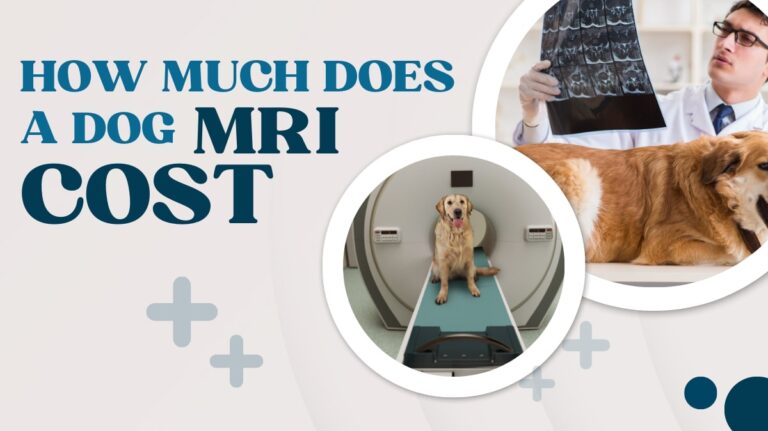When it comes to the health of our furry companions, we want to ensure that they receive the best possible care. In some cases, this may require diagnostic imaging such as an MRI to detect and diagnose certain medical conditions. However, the cost of an MRI for a dog can be a concern for many pet owners. The price of an MRI for a dog can vary depending on a number of factors, including the location, the size of the dog, and the specific imaging equipment used. It’s important to understand the costs associated with an MRI for a dog in order to make an informed decision about their healthcare.
In this article, we will explore the average cost of a dog MRI and the factors that can affect this cost. We will also provide tips for pet owners on how to save money on their dog’s medical expenses without sacrificing quality care. Whether you’re a new dog owner or have been caring for your furry friend for years, this guide will provide valuable information on the cost of dog MRIs.
Factors that impact the cost of a dog MRI
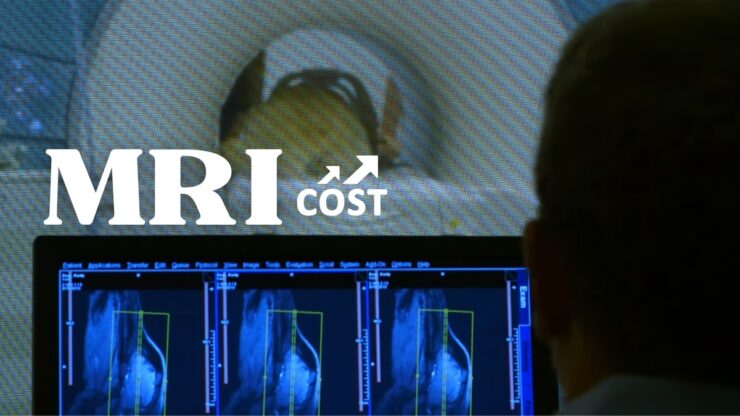
The cost of a dog MRI varies greatly depending on a few factors. These factors include the breed of the dog, the age of the dog, and the geographical location. It is important to understand these factors before making a decision about the cost of a dog MRI. Let’s go through each of the factors and discuss how they can impact the cost.
Type of MRI
There are different types of Magnetic resonance imaging scans available for dogs that can impact the cost of the procedure. The two most common types for dogs are:
- Brain MRI scans: These are used to identify and diagnose neurological issues such as seizures, behavioral changes, and vestibular disease. They can range in cost from $1,500 to $4,000, depending on the complexity of the case and the location of the veterinary hospital. A recent study found that canine brains react to human emotions similar to humans.
- Spine MRI scans: These are used to diagnose spinal cord issues such as herniated discs, spinal cord tumors, and degenerative myelopathy. The cost can range from $2,000 to $5,000, depending on the complexity of the case and the location of the veterinary hospital.
Factors that can impact the cost include the location of the veterinary hospital, the experience of the veterinarian conducting the scan, and the complexity of the case. Some hospitals may also include additional fees for anesthesia, hospitalization, and post-operative care. It’s best to consult with your veterinarian about the cost and any potential additional fees.
Location of the facility
The location of the facility is one of the factors that impact the cost of dog Magnetic resonance imaging. The cost varies depending on the location of the facility. These scans in urban areas or big cities tend to be more expensive than those in rural areas. This is because the cost of living and operating expenses are higher in urban areas than in rural areas.
Additionally, factors such as the size of the facility, the level of expertise of the medical team, and the type of equipment used can also impact the cost of a dog Magnetic resonance imaging. Pre-screening tests and the use of anesthetic can also contribute to the overall cost. Therefore, it is advisable to shop around and compare prices from different facilities to ensure the best value for money.
Size of the dog
The size of the dog is one of the most important factors that impact the cost of an MRI for your furry friend. Here’s how the size of the dog influences the cost of an MRI:
Larger dogs require more anesthesia, which can increase the price of the procedure. The size of the dog also determines the amount of time required for it, which can further drive up the cost. Additionally, the cost of these machines and the technician’s time is generally a fixed cost, making the procedure more expensive for smaller dogs. That being said, the cost typically ranges from $1,000 to $3,000, depending on various factors, including the size of your dog, location, and the veterinarian’s fees.
Additional services required
Several additional services may be required when a dog undergoes Magnetic resonance imaging, and these services can impact the overall cost of the procedure significantly. Here are some of the additional services you may need and why:
- Anesthesia: Most veterinary clinics provide anesthesia for dogs undergoing these scans. The cost of anesthesia can vary depending on the length of the procedure and the size of your dog.
- Sedatives: In some cases, sedatives may be needed to keep a dog calm during the scan. The cost of sedatives will depend on the type and amount needed.
- Contrast agents: Contrast agents may be used to enhance the images produced by the MRI. The cost of these agents can vary depending on the type used and the amount needed.
- Bloodwork: Blood tests may be required before the procedure to ensure that your dog is healthy enough to undergo anesthesia and Magnetic resonance imaging. The cost of bloodwork varies depending on the tests being performed.
- Hospital stay: Your dog may need to stay overnight at the hospital after the MRI if they require additional monitoring or treatment. The cost of a hospital stay can vary significantly. It’s important to discuss any additional services with your veterinarian prior to the procedure to ensure that you understand the total cost of the MRI.
The average cost of dog MRI by type
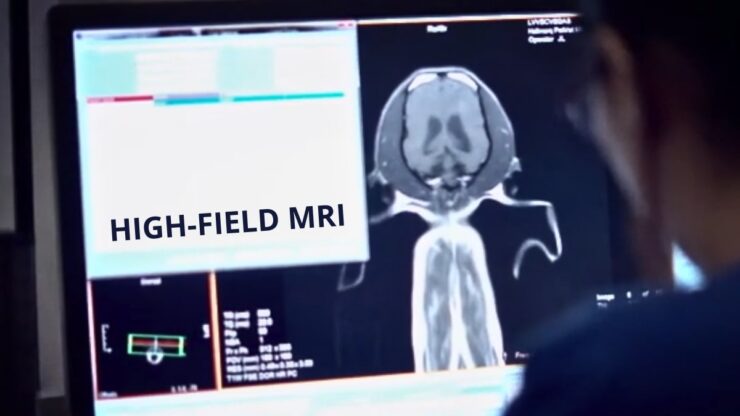
Undertaking an MRI scan on a dog can help detect potential problems and will give you a better understanding of the general health condition of your dog. However, the cost of a dog MRI scan can be quite expensive, varying depending on the type of scan and the size of the dog. Here we will look at the average cost of a dog MRI scan by type.
High-field MRI
It is the most advanced and reliable type of Magnetic resonance imaging technology available for dogs. The cost can vary depending on the type of MRI and the location of the veterinary clinic. Here is the average cost by type:
- High-field MRI: It is the most expensive type and can cost up to $3,000 per session. However, it provides the most detailed images and is the best option for diagnosing complex conditions.
- Open MRI: It is less expensive than high-field Magnetic resonance imaging and can cost between $500 to $1,500 per session. Its open design is an excellent option for dogs that have anxiety or fear of enclosed spaces.
- Closed MRI: It is a less commonly used option and has a price range of $1,200 to $2,000 per session. Its closed design is ideal for producing more detailed images of the area being scanned.
It’s important to note that these prices may vary depending on the vet clinic and location. It is best to inquire about the cost of the procedure from the veterinary clinic before scheduling an appointment.
Low-field MRI
This is a type that can be used for diagnosing medical conditions in dogs and is a less expensive option than traditional high-field Magnetic resonance imaging machines. The cost can vary depending on the type of MRI required, ranging anywhere from $1,000 to $3,500. Here are a few average costs for different types of dog MRIs:
- Brain: $1,200 – $2,500
- Spine: $1,500 – $3,000
- Extremity: $1,000 – $2,500
- Full-body: $2,000 – $3,500
It is an affordable option for pet owners in need of a dog MRI. It can help diagnose medical conditions such as tumors, malformations, and neurological disorders, allowing for earlier intervention and better outcomes for your furry friend. Pro tip- Pet owners can check with their local veterinary clinics for prices and more information on low-field MRI options.
Open MRI
This is a diagnostic imaging machine that uses a magnetic field and radio waves to produce detailed images of your dog’s internal organs and tissues. It’s important to discuss the cost of the procedure with your veterinarian before scheduling an MRI for your dog. Your veterinarian can also provide recommendations on how to manage the cost of the procedure.
Additional Costs to Expect During Dog MRI
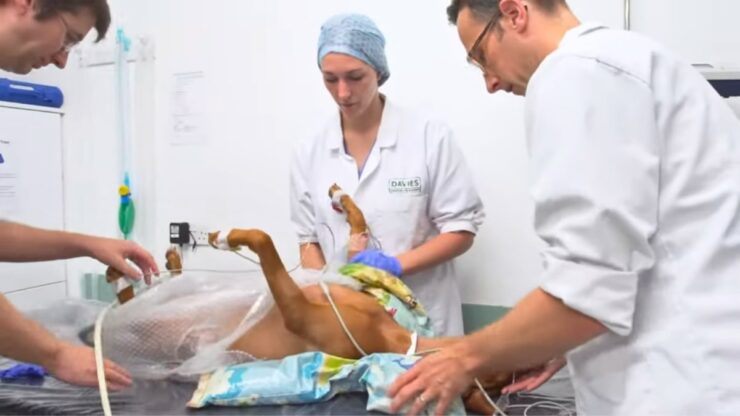
They are an important diagnostic tool for veterinary medicine, but they come at a price. Owners should be aware of the additional costs that can accumulate when getting their dog an MRI. Knowing the total cost of the Magnetic resonance imaging scan, along with any additional costs, will prepare you to budget appropriately for the procedure. Let us explore the additional costs associated with it.
Sedation or anesthesia
Sedation or anesthesia is often required during a dog’s MRI, and it is an additional cost that pet owners can expect to incur. During an MRI, it is essential that the dog remains still to avoid any movement that may distort the images. Sedation or anesthesia can help calm the dog and keep them still throughout the process.
The cost of sedation or anesthesia during a dog’s MRI can vary depending on the size and age of the dog and the duration of the procedure. Generally, sedation may cost around $50 to $150, while anesthesia could cost anywhere from $300 to $800 or more. Talk to your veterinarian about the best option for your dog’s MRI and what additional costs to expect. It is important to prioritize your dog’s health, even if it may come with a higher price tag.
Blood tests and lab work
Blood tests and lab work are often required before a dog undergoes an MRI procedure, which can add to the overall cost of the treatment. These tests are necessary to ensure that the dog is healthy enough to undergo anesthesia during the MRI and to provide baseline values for comparison in case any complications arise.
The cost of these tests can vary depending on the type of test and the veterinarian’s fees but can range from $50 to $300. Besides blood tests and lab work, there are many other additional costs associated with dog MRI, which include anesthesia, consultation fees, interpretation of the results, and follow-up appointments. It’s essential to consult with your veterinarian to get a better idea of the total cost and ensure that you understand what you’re paying for.
Radiologist interpretation fee
The radiologist interpretation fee is an unavoidable additional cost associated with dog MRI that needs to be factored in while determining its total cost. Here are a few things that you should know about radiologist interpretation fees: Radiologist interpretation fees are charged separately from the cost of the actual MRI. The fee covers the cost of a specialized radiologist who examines the MRI images and provides an interpretation of the results which helps the veterinarian in the diagnosis and treatment plan. The cost usually ranges from $100 to $500 based on the complexity of the case and the time spent by the radiologist reviewing the images.
Comparison of dog MRI costs at different facilities
Dog Magnetic resonance imaging costs vary depending on the facility and the region where you get the procedure done. There are a number of factors that can influence the final cost of it, including the type of MRI machine being used, the vet’s fees, and the size of the dog. In this section, we will compare the cost of dog MRIs at different facilities to give you an idea of what to expect.
Large veterinary hospitals
Large veterinary hospitals offer dog MRI tests as part of their diagnostic services, but the cost can vary significantly depending on the facility. Here’s a comparison of dog MRI costs at different veterinary hospitals: A low-end veterinary hospital may charge between $800 and $1,500 for a standard dog MRI. A mid-range veterinary hospital may charge between $1,500 and $3,000 for the same MRI. A high-end veterinary hospital in a big city may charge between $3,500 and $5,000 for a dog MRI, including consultation fees.
Small animal clinics
When seeking these services for your beloved canine, it is essential to compare the cost of the service across different small animal clinics. The cost of a dog MRI depends on various factors, such as the location, the size of the dog, and the expertise of the veterinary staff. Typically, a dog MRI can cost anywhere from $1,000 to $3,000, with an average cost of around $2,000. The cost may also vary depending on the type of body part that requires the MRI scan.
To ensure that you receive top-notch MRI services at a reasonable cost, it is vital to compare quotes from various facilities, confirm the quality of the diagnostic imaging equipment, check the level of expertise of the veterinary staff, and understand the payment options available. By weighing the cost versus the level of service, you can ensure that your furry friend receives the best care.
Tips for managing dog MRI costs
Dog MRIs are useful diagnostic tools when it comes to identifying health issues for your pup, but they can be expensive. To help manage the costs, it’s important to understand the factors that go into the price of a dog MRI and how you can reduce the cost. In this article, we’ll discuss several tips for managing dog MRI costs.
Pet insurance
Pet insurance is a type of health insurance for pets that covers the cost of veterinary expenses, including MRI scans. Before choosing a policy, consider factors such as coverage limits, deductibles, and exclusions. Some pet insurance companies will waive the deductible or copay for an MRI in case of emergency, while others may not provide coverage for pre-existing conditions or certain breeds.
If your dog requires an MRI and you do not have insurance, the cost can range from $1,000 to $3,000 depending on the location, veterinarian, and the reason for the scan. To manage the cost of an MRI, consider asking your veterinarian for a payment plan or looking into third-party financing options.
Payment plans and financing options
The cost of a dog MRI can be staggering, but payment plans and financing options are available to make the procedure more affordable. Here are some tips for managing dog MRI costs: Check with your veterinarian or imaging center for payment plans or financing options that allow you to spread out the cost over a longer period of time. Look for local and national organizations that provide financial assistance for pet owners in need of veterinary care.
Consider pet insurance to help cover the cost of unexpected veterinary expenses such as an MRI. Shop around for affordable imaging centers and compare prices and services. Discuss the pros and cons of the MRI with your veterinarian to make sure it is necessary and the best course of action for your dog’s health.
Negotiating with the facility.
Negotiating with the facility where your dog is scheduled for an MRI can help manage the costs associated with this procedure. Here are some tips to follow: Research the average cost of dog MRIs in your area and what other facilities are charging for the same procedure. Talk to the facility’s billing department before the scheduled MRI to discuss payment options and any discounts that may be available.
Ask if they offer a payment plan that allows you to pay the bill over time instead of all at once. Inquire about any available financial assistance programs or charity organizations that could provide support. Consider whether a lower-cost MRI facility would be a viable option for your dog’s needs. Remember, negotiating can help you save money, but always make sure your priority is your dog’s health needs.
FAQs
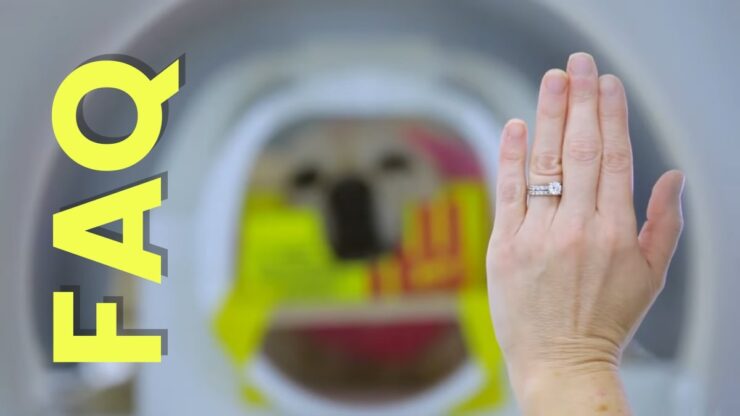
Are there any financing options available for an MRI for a dog?
Some veterinary clinics may offer financing options or payment plans for diagnostic imaging procedures like an MRI.
Are there any risks associated with an MRI for a dog?
An MRI is generally considered safe for dogs, but there is a small risk of complications such as anesthesia complications or allergic reactions to the contrast agent.
How long does an MRI for a dog typically take?
An MRI for a dog can take anywhere from 30 minutes to 2 hours depending on the area being imaged.
How can I find a reputable veterinary clinic for my dog’s MRI?
It’s important to do research and seek out referrals from other pet owners or veterinarians to find a reputable clinic for your dog’s MRI.
Are there any alternatives to an MRI for diagnosing my dog’s medical condition?
Other diagnostic tools such as X-rays, CT scans, and ultrasounds may be used to diagnose certain medical conditions in dogs.
Can I expect the price of an MRI for a dog to increase over time?
The cost of an MRI for a dog may increase over time due to inflation or advancements in technology.
Can I negotiate the cost of an MRI for my dog with my veterinarian?
It may be possible to negotiate the cost of an MRI for your dog with your veterinarian, but it’s important to approach the conversation respectfully and with an understanding of the costs involved.
Is an MRI necessary for every dog with a suspected medical condition?
An MRI may not be necessary for every dog with a suspected medical condition, and it’s important to consult with a veterinarian to determine the best diagnostic approach.
Can I shop around for the best price on an MRI for my dog?
It’s possible to compare prices and services at different veterinary clinics to find the best price for an MRI for your dog.
How can I prepare my dog for an MRI?
Preparing a dog for an MRI may involve fasting before the procedure and providing sedation or anesthesia during the imaging. Your veterinarian will provide specific instructions on how to prepare your dog for the MRI.
Conclusion
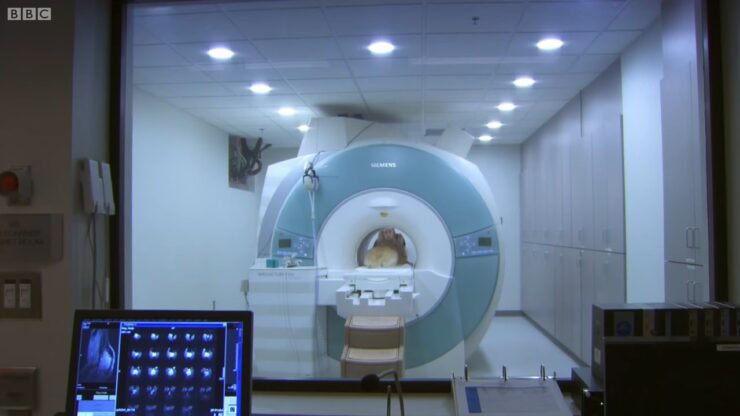
While the cost of an MRI for a dog may seem daunting, it’s important to prioritize the health and well-being of our furry companions. By understanding the average cost of a dog MRI and the factors that can affect this cost, pet owners can make informed decisions about their dog’s healthcare. It’s also important to explore options for pet insurance and financing in order to make high-quality medical care more affordable. Ultimately, the cost of a dog MRI should not be the sole deciding factor in the decision to pursue diagnostic imaging for our pets. With the right information and resources, pet owners can provide their furry friends with the best possible care and ensure their continued health and happiness.

